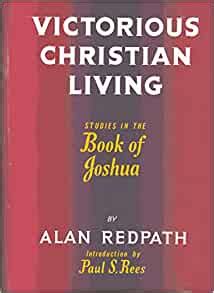A Quote by Charles Dickens
Go ye, who rest so placidly upon the sacred Bard who had been young, and when he strung his harp was old, and had never seen the righteous forsaken, or his seed begging their bread; go, Teachers of content and honest pride, into the mine, the mill, the forge, the squalid depths of deepest ignorance, and uttermost abyss of man's neglect, and say can any hopeful plant spring up in air so foul that it extinguishes the soul's bright torch as fast as it is kindled!
Related Quotes
There was a man that hated his footprints and his shadow, so one day he thought that if he ran fast enough, his footprints and shadow would not be able to follow him and then he never ever had to look at them again. He ran and he ran as fast as he could, but the shadow and the footprints had no problems keeping up to him. And he ran even faster and all of a sudden he fell dead to the ground. But if he been standing still there hadn't been any footprints and if he had been resting under a tree his shadow had been swallowed of the trees shadow.
And when that crop grew, and was harvested, no man had crumbled a hot clod in his fingers and let the earth sift past his fingertips. No man had touched the seed, or lusted for the growth. Men ate what they had not raised, had no connection with the bread. The land bore under iron, and under iron gradually died; for it was not loved or hated, it had no prayers or curses.
This was Barrington Erle, a politician of long standing, who was still looked upon by many as a young man, because he had always been known as a young man, and because he had never done anything to compromise his position in that respect. He had not married, or settled himself down in a house of his own, or become subject to the gout, or given up being careful about the fitting of his clothes.
I saw a very old man, literally eating his own human waste out of hunger. I went to the nearby hotel and asked them what was available. They had idli, which I bought and gave to the old man. Believe me, I had never seen a person eating so fast, ever. As he ate the food, his eyes were filled with tears. Those were the tears of happiness.
He had drawn many a thousand of these rations in prisons and camps, and though he'd never had an opportunity to weight them on scales, and although, being a man of timid nature, he knew no way of standing up for his rights, he, like every other prisoner, had discovered long ago that honest weight was never to be found in the bread-cutting. There was short weight in every ration. The only point was how short. So every day you took a look to soothe your soul - today, maybe, they haven't snitched any.
I had heard the old Indian legend about the red fern. How a little Indian boy and girl were lost in a blizzard and had frozen to death. In the spring, when they were found, a beautiful red fern had grown up between their two bodies. The story went on to say that only an angel could plant the seeds of a red fern, and that they never died; where one grew, that spot was sacred.
We say, then, to anyone who is under trial, give Him time to steep the soul in His eternal truth. Go into the open air, look up into the depths of the sky, or out upon the wideness of the sea, or on the strength of the hills that is His also; or, if bound in the body, go forth in the spirit; spirit is not bound. Give Him time and, as surely as dawn follows night, there will break upon the heart a sense of certainty that cannot be shaken.
His impression was that he had been imprisoned in a shelter deep down in the underworld of his personality, listening and biding his time while insanity rushed like spring flood through the upper layer of his soul, roaring and crashing, leaving terrible destruction in its wake, a deserted, ravaged country. No, he hadn't been crazy, but something inside him had been crazy.





































